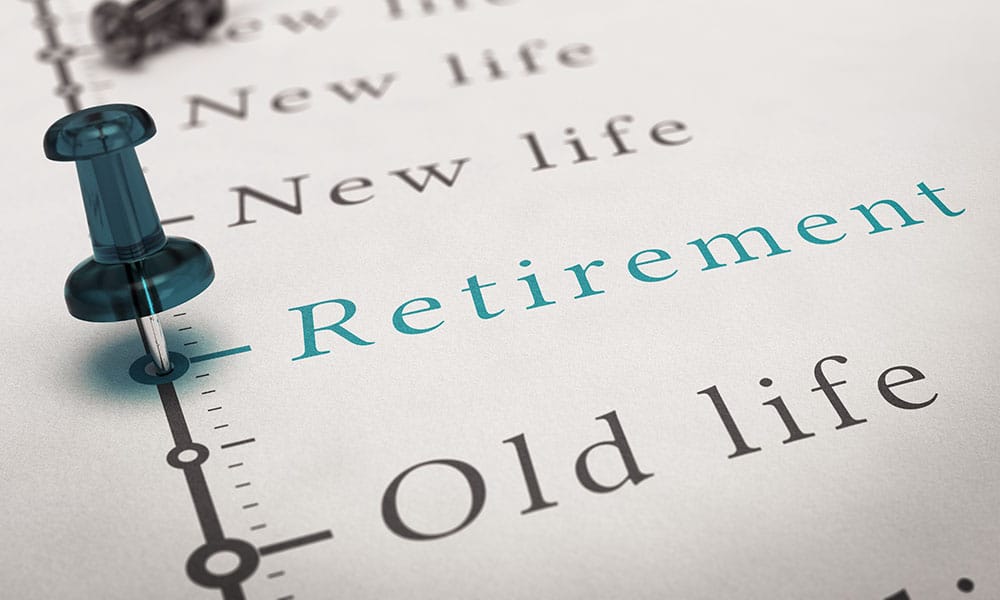No one can just flip a switch at age 65, quit his or her job, and then start to relax on the veranda with an ice-cold lemonade every day. Before retirement, there are many different plans to make and strategies to put into place. While your individual concerns can vary depending on your situation, there are some common concerns faced by almost every pre-retirees.
ESTATE PLANNING
Most pre- and post-retirees don’t plan to spend all their savings and liquidate all assets during their retirement. For the most part, retirees want to leave behind a legacy to their heirs. But as the economy constricts and it becomes harder to save money for retirement, the thought of leaving a legacy behind becomes a less practical desire.
The plans that a retiree can make in order to provide a legacy to his family after death will vary depending on many things. Some questions that pre- and post-retirees must ask themselves include:
- How many family members do I want my legacy to provide for?
- How many generations of family do I want my legacy to touch?
- How much continuing control do I want to exert over the use of the assets I leave behind?
- What are the tax consequences awaiting my family should I pass away and leave my assets as they are?
- Is there anything I can do now to preserve my legacy such as gifting assets before I pass away?
- How is the legislative environment likely to change over the years, and how will that affect gift and estate taxes?
TAXES
The tax environment we have now is not likely to be the same as the tax environment the country will have by the time you have retired. Between the presidential elections now and in the future and widespread, global economic concerns, our tax policies could change drastically by the time you punch your last time card.
Without knowing what kind of tax changes you could be facing, how will you know how much to save? If you plan to live a comfortable retirement, unless all your income comes from a Roth IRA or Roth 401(k), your retirement income will trigger a tax liability. Even worse, those taxes will likely be paid out of your retirement savings—further reducing your balances. The higher those income taxes are, the less powerful your retirement savings become. And while it sounds good to consider saving enough now to pay for taxes later, how can you possibly predict what your tax penalties will be by the time you retire? And how much will they be a decade into retirement? The tax landscape is far from static.
It is not necessarily just the estate tax that retirees and pre-retirees must be concerned about. The income taxes of your heirs can also eat away at your legacy, especially if you have not appointed your beneficiaries in the most beneficial manner. Even leaving your estate to your spouse poses problems.
For example, let’s say you make your spouse the beneficiary of all your assets. Before your death, your individual assets were not enough to trigger estate taxes. But after you pass away and he inherits all your individual retirement accounts, his net worth could be high enough to trigger estate taxes once he passes on.
SAVING ENOUGH
Saving money is one thing—but it is a difficult thing if your personal income tax rises and you are able to retain less of your earned income. If the death tax removes the assets your parents and grandparents wished to pass on to you, and stiff regulations and corporate taxes eat away at businesses’ ability to grow, explore new industries and expand, saving money will move from difficult to impossible.
Then, of course, there are the increased personal expenses one faces as she climbs in age, one of the most obvious being medical expenses. The Center for Retirement Research at Boston College found that, in 2010, the typical 65-and- over couple needed a minimum of $197,000 to pay their out-of-pocket medical expenses during retirement.2 Retirees with preexisting medical conditions or those who suffer accidents and illnesses may need even more.
And what about individuals who need help with those activities of daily living that Medicare won’t provide financial assistance for? Should you require help bathing, dressing, eating or with any other nonmedical personal needs, then you will need the services of an in-home long-term care provider. According to The Wall Street Journal, 70 percent of individuals who live to at least age 65 will eventually need this kind of care.
Let’s not forget everyday living expenses. Retirees must pay for food, clothing, housing, insurance, transportation and all the other expenses necessary to support their lifestyle before retirement, but now they must do so out of the savings they have amassed over the years. And they must do so even while inflation increases the price of goods and erodes the buying power of their retirement savings.
If a retiree hasn’t saved enough to cover all these various expenses, he must then choose between comfort and survival. Slowly, he will begin paring down his standard of living so that it becomes affordable as outside financial pressures squeeze the effectiveness of his retirement savings.
INVESTMENT VOLATILITY
All of the changes and insecurities discussed above will factor into how your investments can perform. If everyone is worried about each of these factors, as you are, and is unable to save enough money thanks to restricted businesses and the punitive tax environment, what will they do with their savings? Will they invest in a risky market? Or will they hoard it in an effort to preserve their principal? If they do stockpile it, will the volatile market then force you to do the same, resulting in lackluster returns that accumulate too little to allow you to retire?
A great example of the very real volatility of the entire market occurred on November 7, 2012, after Barack Obama was re-elected. The Dow Jones Industrial Average plummeted 348 points just two hours after the market opened. By the end of the day, the market had rallied slightly, but not enough to regain pre-election levels. By the end of the week, the DJIA was down a total of 436 points—sending a clear message about the image investors, both institutional and retail had for the coming four years.
While a pre-retiree can always diversify his holdings so that they create a buffer against the volatility that can be experienced by a company or industry, there is little that a retiree or pre-retiree can do to protect himself against systematic risk—the risk that the entire market is going to move a certain way due to political, economic and other events.
If the thought of managing all of these things on your own creates a bit of fear about your retirement, call us. No one is expected to walk this road alone. We are here to help you retire with more money in your pocket and the peace of mind to enjoy it.




